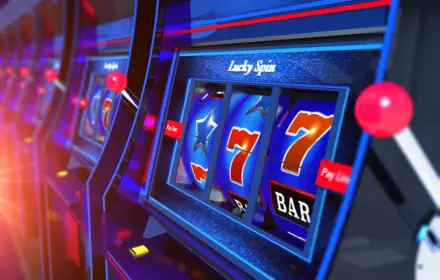Casino promo codes have become a tool that both grants access to bonuses and shapes the discipline of the game. Unlike random promotions, a promo code works as a precise key to additional opportunities. Each code is bound by rules and conditions, so its use requires an understanding of the mechanics, not just luck.
Casino Promo Codes: Essence and Value
What is a promo code in a casino? It is a combination of characters that activates a specific bonus. The code serves as an individual pass to privileges: extra money, free spins, cashback. In 2024, up to 65% of players choose the option with a code when registering, demonstrating the real value of the tool.
Activating a promo code turns a regular deposit into an extended balance. For example, with a $10 deposit, a promo code can double it and add 50 free spins on slots. This approach increases interest in the platform and creates a competitive advantage for the brand.
Where to Find Casino Promo Codes
Finding valid codes requires attention to sources. Fresh casino promo codes are posted on operators’ official websites, in email newsletters, affiliate platforms, and specialized forums. Professional players prefer to check multiple sources at once to exclude outdated options.
Registering on official resources increases the chances of receiving exclusive offers. Online casinos use promo codes not only as a marketing tool but also as a means of retaining the audience. The more precise the setup of promotions, the higher the trust in the brand.
How to Use Promo Codes in a Casino
Effective code application requires following the instructions precisely. The code is entered during registration or in the personal account before depositing funds. Activation takes a few seconds, but the result directly depends on the conditions.
When activating a promo code, the player needs to consider several key factors:
- The minimum deposit sets the starting point for bonus accrual.
- Wagering requirements determine the number of times the amount must be played through.
- Slot restrictions specify the particular games to choose from.
Ignoring the rules leads to losing the benefit. Therefore, proper use of promo codes is based on careful analysis of the conditions and correct strategy calculation.
How to Wager Bonuses Using a Promo Code
Each bonus comes with a wagering requirement — a playthrough coefficient. If the coefficient is 30 and the bonus is $10, the player needs to place bets totaling $300. This process prevents immediate withdrawal of the gifted funds and establishes fair conditions for both sides.
Wagering affects the game’s performance. For instance, a low wager (x20) makes meeting the conditions easier and increases the chances of winning. A high wager (x50) requires significant bets and raises the risk. Therefore, when choosing promo codes, players primarily consider this parameter.
Casino Promo Codes and Types of Offers
Modern promo codes cover various bonus mechanics, allowing players to choose a format based on their goals. They help manage the balance flexibly and grant access to unique online platform promotions.
Popular formats include:
- additional funds on deposit;
- free spins on popular slots;
- increased cashback on losses;
- participation in a limited-time promotion;
- exclusive conditions for registering new accounts.
Each option differs in mechanics and the level of benefit. For example, a deposit promo code often leads to a steady balance growth, while free spins allow testing new games without risking personal funds.
Rules and Conditions: Foundation of Reliability
A key factor is transparent rules. Casinos must specify the code’s validity period, betting limits, and list of games where activation is allowed. Violating these conditions nullifies the results and deprives the player of winnings.
The reliability of a platform is confirmed by its license and reputation. A responsible operator does not hide conditions and offers a convenient guide for beginners. Using casino promo codes in such systems ensures a predictable outcome and eliminates the risk of deception.
Slang and Professional Terms
The world of gambling forms its own slang: wager, playthrough, deposit, cashback. Each term reflects a specific action. Understanding the terminology speeds up the comprehension of conditions and facilitates finding optimal solutions. Casino promo codes are integrated into this vocabulary as a basic element that connects bonus activation with practical player actions.
Search and Benefit: Key to Success
Efficient code searching saves time and increases the chances of winning. Professionals recommend checking for updates at least once a week because fresh casino promo codes appear frequently. It is important to choose a reliable source: official newsletters, verified partners, thematic websites with operator ratings.
Choosing the right code directly impacts the benefit. For instance, activating a promo code with 25% cashback returns a portion of the lost funds, reducing risks. In other cases, players receive fixed free spins, allowing them to test slots without additional costs. Promo codes become tools for control and strategic planning, not just a way to boost the balance.
Casino Promo Codes and Registering New Accounts
When opening an account, operators often offer a registration bonus. Entering a code during this process grants access to exclusive conditions. For example, registering with a promo code not only brings the standard welcome package but also additional free spins or increased cashback limits.
After registration, casino promo codes are entered in the personal account. This tool allows activating the promotion without contacting support. The convenience of the process increases trust in the platform and encourages the audience to return.
Guide to Proper Application
Effective use of promo codes requires attentiveness at each activation stage. A systematic approach helps avoid mistakes and turns bonuses into a tool for controlling the game.
Before activating a promo code, players should follow several mandatory steps:
- Check the code’s validity and expiration date.
- Familiarize yourself with the conditions: wagering requirements, limits, game list.
- Activate the code through the personal account or when depositing funds.
- Monitor the wagering rules and balance control.
- Record the results and use the experience for the next session.
This guide forms a sustainable habit of rational bonus use and eliminates random errors.
Online Casinos: Rules of Playing with Bonuses
Online platforms offer casino promo codes as part of the overall loyalty program. Each code is embedded in a set of rules that regulate transparency and reliability of the process. For example, activation is limited to a specific period, and winnings depend on correctly fulfilling the conditions.
Using promo codes instills in the audience a habit of carefully reading the rules. This impacts overall discipline and increases the level of financial literacy. Such an approach makes the gambling process less chaotic and more manageable.
Conclusion
Casino promo codes form a whole system where marketing merges with calculation, and emotions are balanced by rules. Proper use of codes allows increasing deposits, testing slots, getting cashback, and securing winnings. Attentiveness to conditions, transparent rules, and a reliable source turn the code into a strategic tool, not just a random gift.
 en
en  ru
ru  de
de  ar
ar  es
es  hi
hi  fr
fr  nl
nl  it
it  pt
pt  el
el 














